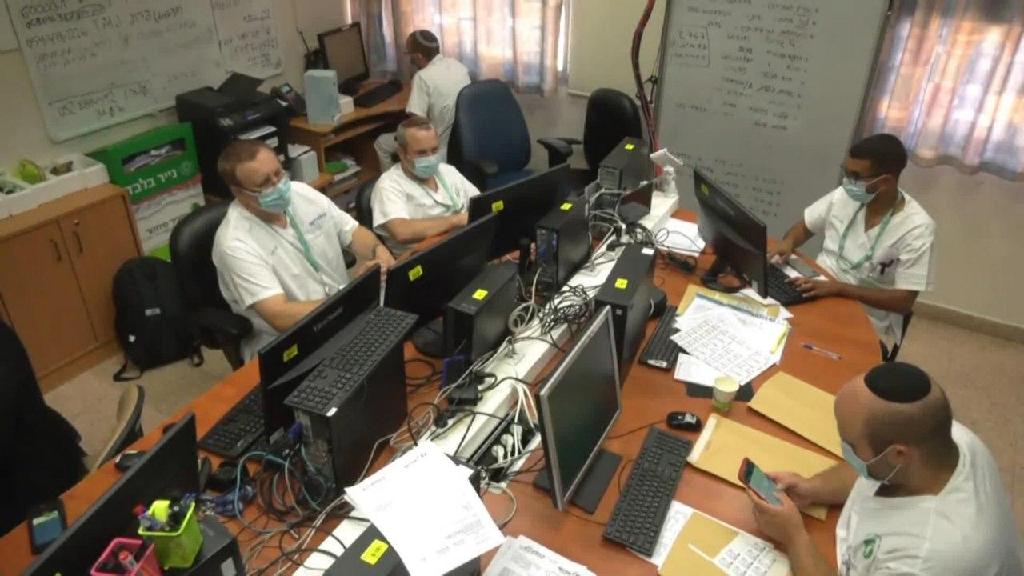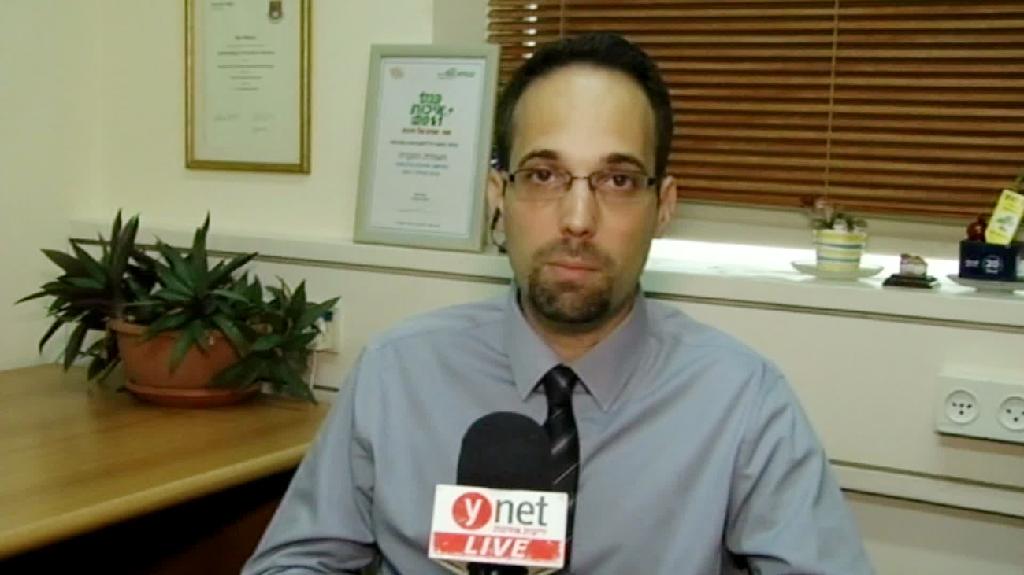A senior health expert working with coronavirus czar Ronni Gamzu warned on Wednesday that Israel has to lower infection rate from the virus before winter arrives and seasonal bouts of flu begin to appear.
"Winter brings with it flu season and that too will require ICU beds, so we must reduce morbidity beforehand or risk endangering public health," said Prof. Ran Balicer, a member of the cabinet's coronavirus response team.
The Health Ministry said Wednesday that there had been 3,496 new coronavirus cases diagnosed on Tuesday, bringing the number of active cases to 30,079.
A total of 9,571 people have tested positive for the virus since the beginning of the week. The death toll for COVID-19 in Israel currently stands reached 1,048.
Balicer said many members of the public were confused by shifting health directives and called for better messaging and enforcement to stop people from repeatedly violating instructions.
"We have to give the night-time curfew in hard-hit areas a chance," Balicer said. But, he added, "this was not our preferred option."
At least 40 locations across Israel were placed under night-time curfew at 7pm on Tuesday, in a new measure that seeks to stem the spread of the coronavirus in areas with high infection rates.
The curfew will be in place between 7pm and 5am for a period of one week and was introduced after Haredi politicians pressured Prime Minister Benjamin Netanyahu into rejecting a comprehensive plan for stemming the pandemic devised by coronavirus czar Prof. Ronni Gamzu, which would include full lockdowns in areas of high contagion.
The plan presented to the government by Gamzu was a system based on the colors of a traffic light, with "green" zones - where contagion was lowest - being restricted less than "orange" zones. The "red" areas, with the highest infection rate, would be placed under the most severe restrictions in an effort to prevent further spread of coronavirus.
Gamzu and Health MInistry Yulki Edelstein on Tuesday went into quarantine after coming into contact with a person infected with coronavirus.
Balicer said he hoped the curfew would at least reduce the number of crowded social events that are seen as causing many of the soaring number in cases.
"We have progressed from a worrying but steady rate of infection to a more dangerous increase in daily confirmed cases," Balicer said.
"This indicates we may have to impose further restrictions because we must not allow hospitals to be full to capacity. Hospitals in the north of the country are already experiencing real difficulties and say they may not be able to provide proper medical attention to the growing numbers of new patients."
He warned that though the increase in cases has not yet translated to overcapacity in ICUs past experience has shown there is a two-week delay before patients suffer a deterioration in their condition and the number of those needed additional care would rise.
6 View gallery


Healthcare professionals monitor coronavirus patients at Soroka Medical Center in Be'er Sheva
(Photo: Barel Ephraim)
"This is what I am worried about and what motivates me to think of more stringent measures that I would prefer to avoid," Balicer said, saying he was concerned by the cost to society, economy and public trust.
"We have been criticized for our delays in enforcing measures," he said, claiming the delays increased the risk of a full lock-down during the High Holidays.
"Ministers will have to decide if to take the most extreme measures. They are aware of the risks of overcrowding in hospitals," Balicer said.
Balicer did not advocate the same full lock-down measures imposed during the first wave of the virus last spring, but said serious mitigation efforts and enforcement must be employed. Still, he pointed out, it was a decision the ministers would have to make.
"Unfortunately, our proposed plan, which I believe is the best way forward in order to live with the virus is being blocked from implementation," he said.
"We have missed the opportunity to implement the plan at the time it could have yielded the best results, before morbidity became so prevalent, but I hope we can unite as a society and understand the challenge we are facing," Balicer said. "If we have the public's cooperation and people refrain from crowded events, we may be able to turn the corner and prevent further deterioration."
6 View gallery


A crowded ultra-Orthodox wedding in Rehovot last week that violated health directives on mass gatherings
(Photo: Nadav Abas)
Balicer's comments came after it emerged that Deputy Education Minister Meir Porush, a member of the ultra-Orthodox United Torah Judaism party, on Tuesday attended an indoor wedding with hundreds of guests held in violation of health directives.
Porush said he was only present at the event for a few minutes and called on everyone to observe Health Ministry directives.
First published: 13:05, 09.09.20





